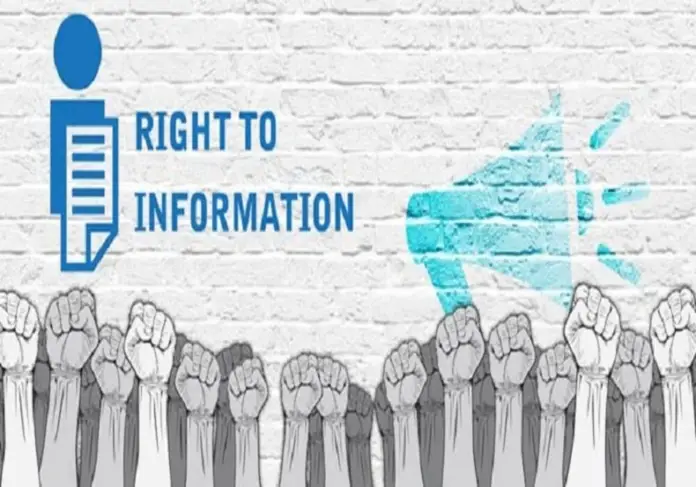In recent years, there has been an almost unstoppable global trend towards recognition of the right to information (RTI) by countries, intergovernmental organizations, civil society, and the people. The RTI has been recognized as a fundamental human right, which upholds the inherent dignity of all human beings. The RTI forms the crucial underpinning of participatory democracy. It is essential to ensure accountability and good governance. The greater the access of the citizen to information the greater the responsiveness of government to community needs.
Alternatively, the more restrictions that are placed in access, the greater will be the feelings of powerlessness and alienation. Without information people cannot adequately exercise their rights as citizens or make informed choices. The basic object of the RTI is to empower citizens, promote transparency and accountability in the working of government, contain corruption, and make our democracy work for the people in real sense.
RTI is a powerful instrument to fight against corruption. Good governance is characterized by political accountability, availability of freedom, bureaucratic accountability, availability of information, law abiding citizens, and cooperation between government and society. Therefore, RTI is an attractive corollary of good governance. Enactment of RTI laws paves way to an open and transparent form of government. In such systems every citizen has a right to seek and receive information from governmental departments, and citizens can make administration more responsible and transparent leading to good governance.
Access to information is crucial for good governance as it reflects the activities of a government. If people do not know what is happening in their society and the actions of those who rule them are hidden, they cannot participate in the affairs of government. Access to information not only promotes openness, transparency and accountability in administration but also facilitates active participation of people in the democratic governance processes. Moreover, RTI is a powerful tool, and its implementation ensures other rights already promised in the constitution.
In Pakistan, RTI is a constitutional as well as a statutory right. It is called a constitutional right because it is provided in article 19A of the Constitution of Islamic Republic of Pakistan 1973, and it is called statutory right because both at federal and provincial levels legislation exist for its protection and implementation.
The Constitution of Pakistan 1973 stipulates in its Article 19A: “Every citizen shall have the right to have access to Information in all matters of public importance, subject to regulations and reasonable restrictions imposed by law.” The word “restrictions” suggest that RTI is not an absolute right.
In 2017, there were two sets of RTI laws in Pakistan: the Freedom of Information Ordinance 2002 and Balochistan Freedom of Information Act 2005. The Sindh Freedom of Information Act 2006, repealed in 2017, belonged to the first generation RTI laws. These laws do not adhere to standards of effective RTI legislation as judged against international standards and best practices. These standards are maximum disclosure, minimal exemptions, obligation for proactive disclosure, process to facilitate access to information, minimum cost for the requested information, and disclosure taking precedence over exemption.
The Punjab Transparency and Right to Information Act 2013, Khyber Pakhtunkhwa Right to Information Act 2013, and Sindh Transparency and Right to Information Act 2017 belong to the second generation RTI laws. These laws, in general, adhere to all the standards of effective RTI legislation.
The key advocacy lessons from recent years in Pakistan lead to the conclusion that civil society groups need to keep a watchful eye on bureaucrats through RTI legislation as officialdom tends to weaken RTI laws. Enacting effective RTI legislation is one thing and putting these laws into action is another. The general impression is that leadership and bureaucracy try to hamper implementation of RTI laws.
Information Commissions are playing a key role for the effective implementation of RTI laws in Pakistan, both at federal and provincial level. Under the federal and provincial RTI laws, information commissions are established to give effect to RTI laws. If a person applies to any government department to seek information about any matter relating to public importance, and that department refuses to give the relevant information or cause an unnecessary delay in providing the information, the information commission jurisdiction can be invoked in that situation by that person and commission by issuing summons to the concerned public information officer, asking them the reason for not providing the requisite information within the specified time. The matter is not finished there if the commission is of the opinion that the relevant PIO is deliberately not providing the information, and in that case, the commission can impose a fine on the PIO.
RTI is a very valuable right in the hands of Pakistani citizens to combat corruption and for assurance of transparency and good governance.







